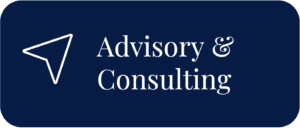Introduction
Procurement consulting has become crucial for businesses since it assists companies in optimising what they spend and how they spend which is pivotal for managing costs, driving for value (and competitive advantage) and reducing risk.
1% improvement in procurement can deliver results equivalent to a 10% increase in sales.
That’s your business case right there!
Think about that for a moment. Sales directly translate into revenue, but a significant portion goes towards covering costs of goods sold (COGS) and other operational expenses. Procurement plays a crucial role in managing these costs. By achieving a 1% reduction in procurement spending, you directly improve your profit margin by 1%, which can have a significant impact on your bottom line.
The key benefits of leveraging procurement consulting include significant cost reductions, improved supplier relationships, and enhanced supply chain resilience.
Businesses can expect not only to see immediate financial savings but also to achieve long-term value through strategic supplier management and risk mitigation strategies.
By aligning procurement strategies with business goals, procurement consultants help firms navigate market complexities, ensuring they remain agile and responsive to change
In this two-part series, we delve into procurement consulting – the what, the how, the why and importantly the who! In Part 1 we firstly explore the fundamentals of procurement consulting and its critical role. We delve into what procurement consulting encompasses, why it’s become a linchpin for companies looking to gain a competitive edge, and how it’s reshaping the landscape of procurement. Through real-world examples, we’ll reveal the immediate and strategic impacts of procurement consulting, setting the stage for a deep dive into how aligning procurement with strategic goals can drive growth and competitive advantage.
Understanding Procurement Consulting
Procurement consulting serves businesses across various stages of procurement maturity, from those without a formal procurement department (“green fields”) to those with advanced, mature procurement functions. This advisory service is tailored to enhance, develop, or even establish a company’s procurement capabilities, depending on its current level of maturity.
For organisations at the greenfield stage, procurement consulting can lay the foundational structures for procurement, creating processes, guidelines, and strategies from scratch. This is crucial for businesses seeking to formalize their purchasing activities, establish efficient supplier relationships, and implement cost-saving measures early in their development.
As companies evolve, procurement consulting adapts, focusing on refining and optimising existing procurement functions. This can include advanced spend analysis, strategic sourcing, digital transformation of procurement processes, and sustainability integration. For mature procurement departments, consultants offer insights into innovative practices, benchmarking against industry standards, and strategies for maintaining a competitive edge through procurement excellence.
The scope of procurement consulting within the business landscape is thus comprehensive, offering strategic guidance, operational improvements, and transformational strategies tailored to each organisation’s specific needs and maturity level. This ensures that businesses at any stage can harness procurement as a strategic tool for cost management, risk mitigation, and value creation.
[READ: Future-Proofing Your Procurement: The Cost of Ignoring Maturity]
Why Procurement Consulting?
Critical Role of Procurement Consulting:
Procurement consultants are experts in streamlining and optimising the procurement process. They bring a wealth of knowledge and experience to help businesses:
- Reduce Costs: Through strategic sourcing, negotiation tactics, and supplier management, consultants can identify significant cost savings opportunities.
- Improve Efficiency: By analysing processes and implementing best practices, consultants can streamline procurement workflows, saving time and resources.
- Mitigate Risk: Consultants can help identify and manage risks associated with suppliers, ensuring continuity and quality.
- Enhance Compliance: They can ensure adherence to procurement regulations and ethical sourcing practices.
- Drive Innovation: Consultants can help businesses identify new and innovative sourcing solutions to gain a competitive edge.
Examples to Illustrate Procurement Consulting Assignments:
These examples below highlight the tangible, specific ways procurement consultants add value. This list is by no means exhaustive, just illustrative!
- Strip Cost Out – Quickly: “Can we deliver 10% savings on these categories in 6 months?” Procurement consultants conduct opportunity analysis to identify quick wins, engage in strategic sourcing sprints, and deliver value rapidly. This approach is ideal for businesses seeking immediate cost reductions without compromising quality or supplier relationships.
- Establishing Your Procurement Organisation and Process:“How do we structure our greenfield function or restructure brownfields?” Consultants assist in deciding the immediate resources required, structuring the procurement function, establishing reporting lines, and setting KPIs and metrics. They also create a project plan targeting short- to mid-term goals, ensuring the procurement organisation is aligned with the business’s strategic objectives.
- Contract Renegotiations: “Can we get better prices or more value from the same supplier, without exiting the relationship?” Through skilled negotiation tactics and deep market knowledge, procurement consultants help clients renegotiate existing contracts. The goal is to enhance terms, achieve cost savings, or secure additional value without changing suppliers.
- RFx Management for a Particular Category: Consultants manage the Request for Proposal (RFP), Request for Quotation (RFQ), and Request for Information (RFI) processes tailored to specific categories. This involves designing the RFx, managing bidder communications, and evaluating responses to ensure the best supplier selection based on quality, cost, and service criteria.
- Spend Analytics to Identify Gaps: “Where are the opportunities, risks, and significant process gaps in our procurement?” Utilising advanced analytics, consultants dissect spending data to uncover inefficiencies, risks, and areas of untapped potential within the procurement process. This analysis helps businesses plug leaks, capitalize on opportunities, and build a more resilient procurement strategy.
Real-World Impact of Procurement Consulting:
Here are some examples of how procurement consulting has made a significant difference:
Case Study 1: Cost Reduction in Manufacturing: A manufacturing company engaged a consultant to analyse their procurement of raw materials. The consultant identified inefficiencies in sourcing and negotiated better deals with suppliers, resulting in a 15% reduction in material costs.
Case Study 2: Streamlining Procurement Operations: A healthcare organisation partnered with a consultant to improve their procurement of medical supplies. The consultant implemented a new e-procurement system, streamlined approval workflows, and standardised purchasing processes. This led to a 20% decrease in procurement cycle time and improved inventory management.
Case Study 3: Sustainable Sourcing: A food and beverage company hired a consultant to help them implement sustainable sourcing practices. The consultant identified new suppliers with environmentally friendly practices and helped the company develop a sustainable sourcing policy. This not only improved the company’s environmental footprint but also resonated well with their customers.
The Strategic Value of Procurement Consulting
Procurement consulting goes far beyond simply slashing costs. By aligning procurement strategies with your overall business objectives, consultants can be a powerful driver of growth, innovation, and competitive advantage. Here’s how:
Alignment with Strategic Goals:
- Cost Optimisation: Procurement consultants help you identify and eliminate wasteful spending throughout the procurement process. This frees up valuable resources that can be reinvested in core business activities or strategic initiatives.
- Supply Chain Efficiency: By optimising your supply chain, consultants ensure a smooth flow of goods and materials, reducing lead times, improving responsiveness to market changes, and minimizing disruptions.
- Innovation and Technology Integration: Consultants can help you identify innovative suppliers with cutting-edge technologies. This can lead to the development of new products or services, improved product quality, and a more efficient production process.
- Risk Management: A robust procurement strategy mitigates risks associated with supplier disruptions, geopolitical issues, or economic fluctuations. This ensures business continuity and protects your bottom line.
- Sustainability Integration: Procurement consultants can help you integrate sustainable practices into your sourcing strategy. This could involve finding environmentally responsible suppliers and adopting ethical labor practices. This not only benefits the environment and aligns with your social responsibility goals but also resonates with eco-conscious consumers and investors.
Driving Growth and Competitive Advantage:
- Improved Profitability: By optimising costs, securing better deals, and ensuring efficient operations, procurement consulting directly contributes to increased profitability, fuelling your business growth.
- Enhanced Customer Satisfaction: Efficient supply chains ensure on-time delivery and product quality, leading to higher customer satisfaction and improved brand reputation.
- Market Responsiveness: Streamlined procurement processes allow you to adapt to changing market conditions more quickly. This enables you to adjust sourcing strategies, identify new suppliers, and seize new opportunities ahead of your competitors.
- Innovation through Collaboration: Consultants foster collaboration between procurement, research & development, and other departments. This cross-functional communication can spark innovation by identifying new materials, technologies, and sourcing solutions that contribute to product differentiation and a competitive edge.
Overall, procurement consulting offers a strategic approach to procurement that aligns seamlessly with your broader business objectives. By optimising your procurement function, consultants can help you achieve sustainable growth, drive innovation, and position your business for long-term success in a competitive market.
As we wrap up the first instalment of our series on the transformative power of procurement consulting, we’ve delved into the foundational understanding of what procurement consulting entails and its undeniable role in enhancing operational efficiencies and driving business success. From establishing or redefining procurement processes for organisations at any maturity level to the strategic alignment with overarching business objectives, procurement consulting has been highlighted as a critical lever for cost management, risk mitigation, and value creation.
Don’t miss the second part of our exploration! In Part 1, we’ve explored the vital concepts underpinning procurement consulting, from its definition to the transformative effects it has on businesses. We’ve seen how it serves as a strategic ally in driving growth and achieving competitive advantages. As we pivot to Part 2, prepare to dive into the practicalities—how procurement consultants apply their expertise through core and specialised services to deliver tangible results, drive cost savings and forge robust supplier relationships.








